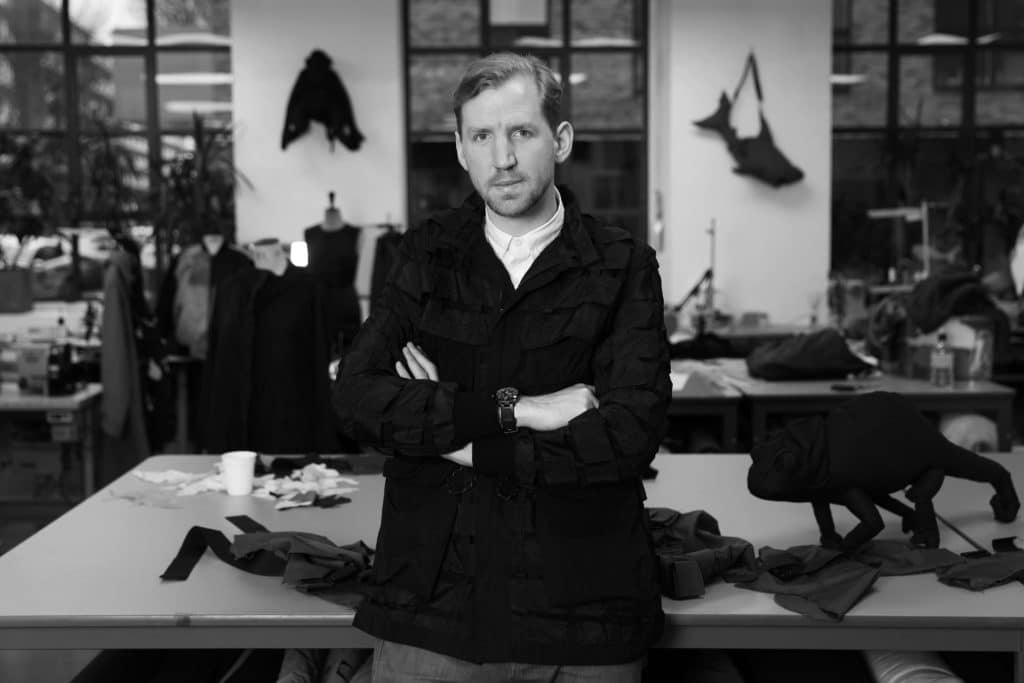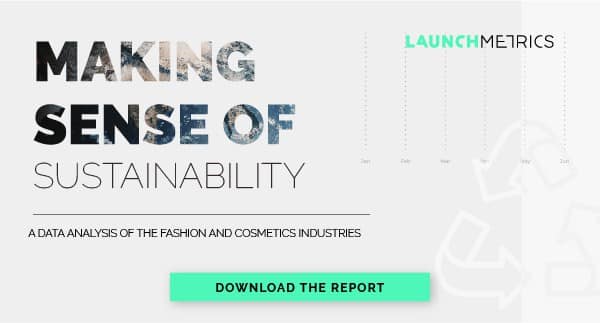Christopher Raeburn has been a long-time champion of sustainable practices in the fashion industry, which he endeavors to put at the forefront of the brands he works with. Christopher is the founder of RÆBURN - a collaborative and creative fashion studio - and Creative Director of Timberland. He has also collaborated with the likes of Moncler, Barbour and Victorinox to name a few, and is the winner of a British Fashion Award, three UK Fashion and Textile Awards and GQ Men of the Year recipient for the Best Emerging Designer category.
Making Sense of Sustainability: An Interview With Christopher Raeburn
Throughout your time in the fashion industry, you have been known as someone that champions sustainability. Have you seen other designers shift towards this too over time?
Definitely. It is a brilliant moment for the industry and I am positive about the changes that are starting to take place; both in terms of new emerging designers and even bigger brands that are reconsidering their approach. The innovation that is happening around responsible design is ground-breaking, so to now be operating the business in the way we do, where we are specifically trying to push innovation forward in a modern way, is really exciting. We’re really proud not only to be challenging ourselves but also to the industry as a whole on moving things forward. Together we are becoming ever closer to closing the loop.
How have you looked at your entire internal process as a business as well as your final product to incorporate sustainable practices throughout?
As a designer, I carry an obligation to consider what we are doing at RÆBURN and why; from the materials we use e.g. in our RÆMADE collections, to offering lifelong free repairs and keeping production small. Everything we do is dictated by the 3R’s ethos; RÆMADE, RÆDUCED, RÆCYCLED. That reflects not only in our collections but also in the way we work day by day. For instance, what brands we support and carbon offsetting our shipping.
Although there is more we can do, we are committed to do the right thing and make strong, responsible choices that provide our customers with a superior alternative.
You have mentioned that your collections are always “design-led first.” What are the challenges when it comes to producing a truly sustainable collection that is also designed well?
Sourcing the right material is paramount as there needs to be the right balance of functionality, wearability, and of course, good design. The RÆMADE aspect of the brand also necessitates a lot of work sourcing surplus materials with the right qualities and costs, and the hours required to dissemble these items and rework them is the biggest challenge in that regard.
What solutions and resources are there for brands that are trying to implement more sustainable practices?
What’s positive is that there is an increasing number of accessible initiatives and resources available to help brands both big and small. For example, whilst at the Copenhagen Fashion Summit earlier this year, Nike released its Circular Design Workbook to inform designers on the topic of circularity. On a larger scale, there is also the UN Fashion Industry Charter for Climate Action which offers working group support in light of its signatories’ strict climate targets.
How have you seen the customer response or demand change in the past few years when it comes to considering sustainability as a purchase-driver?
I think we’re at an exciting pivotal time where a shift is beginning to happen. We certainly feel like our customers (old and new) are becoming more engaged, they’re curious and interested, and keen to ask questions.
How do you see the future of sustainability in the fashion industry?
The industry is on the cusp of being changed radically, and there are really interesting materials and programs which will totally affect the way we are consuming. We have to become accountable for the way we make, produce, sell and dispose of fashion.
Do you want to understand which fashion and cosmetics brands are driving the conversation around sustainability?
Download our most recent report for a full list of the brands, influencers, keywords and strategies that are instrumental when it comes to sustainability.

